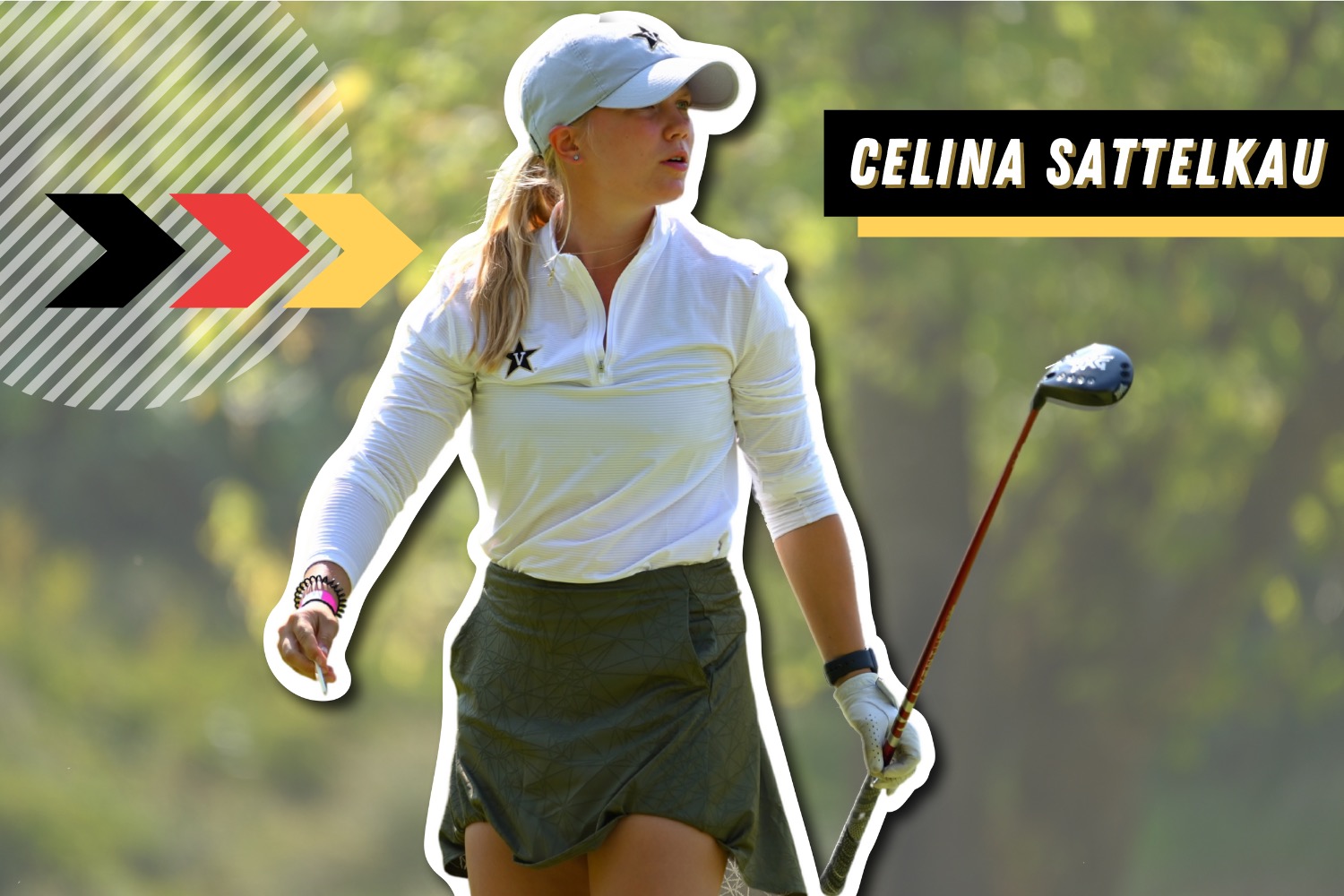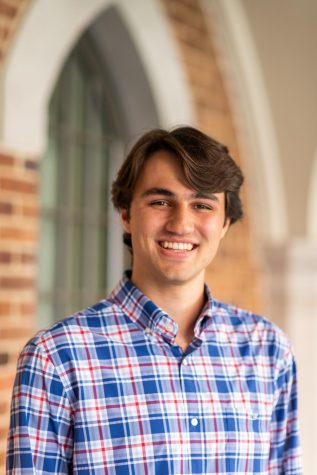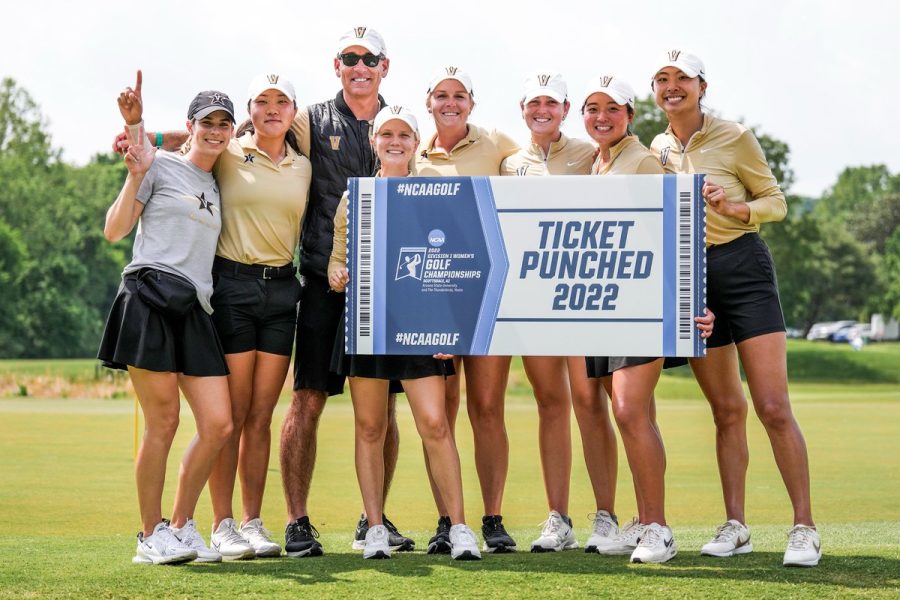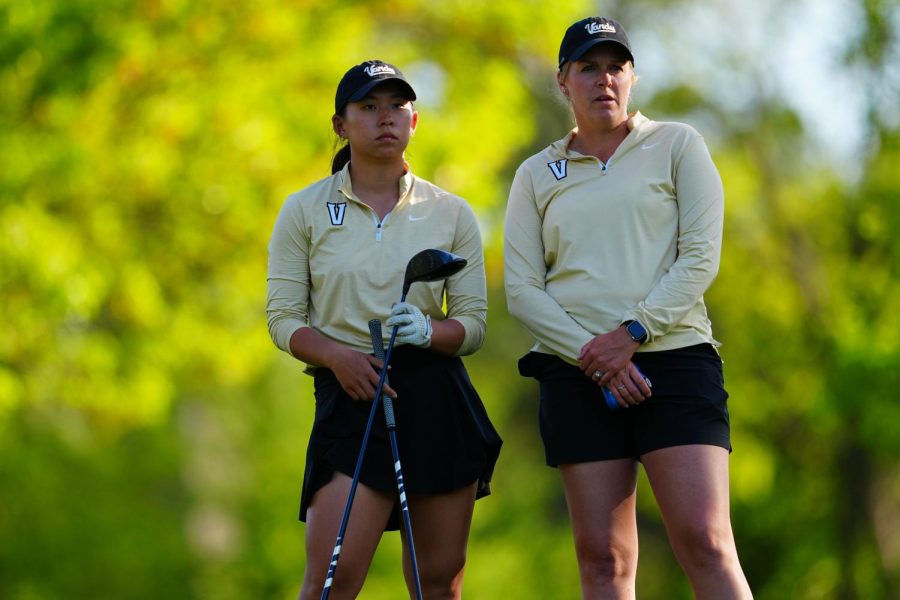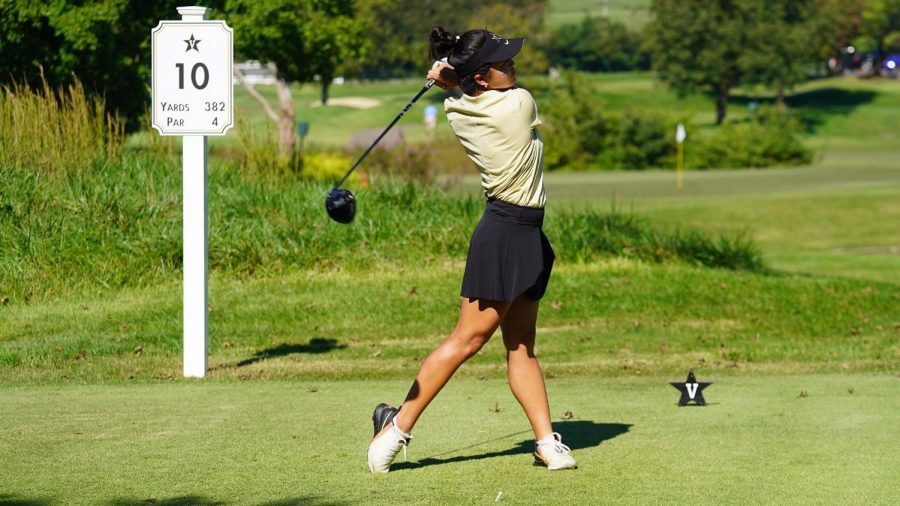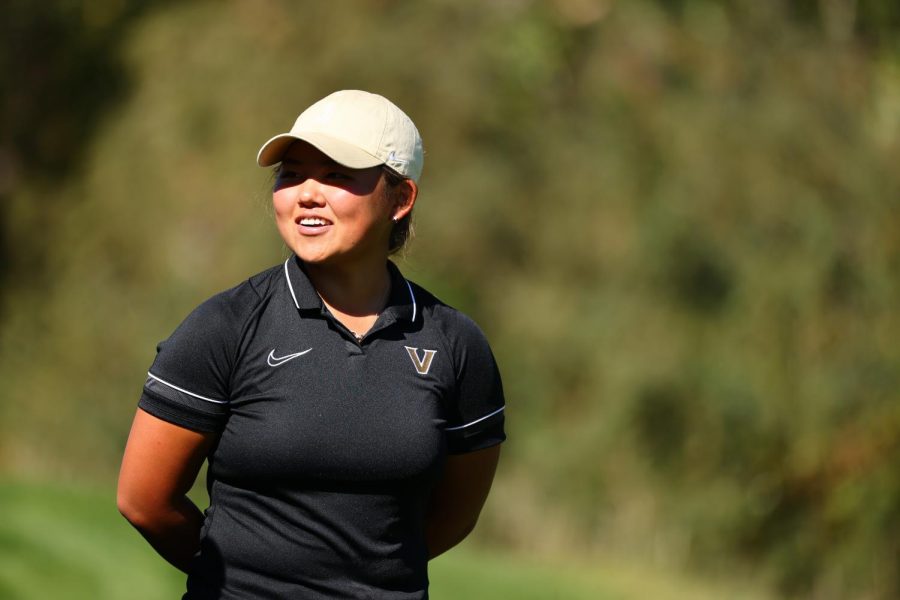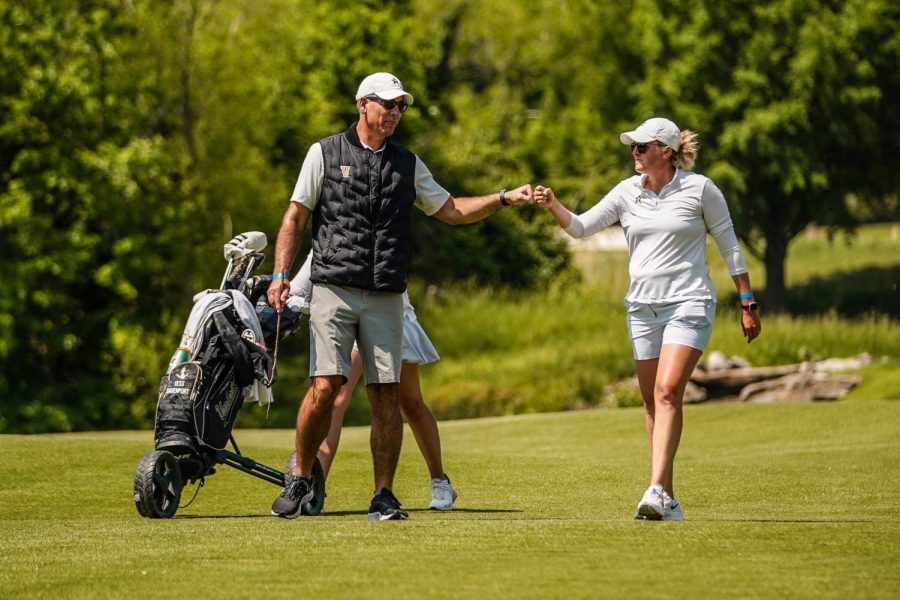“Celina Sattelkau has—for me, anyway—been the surprise of college golf,” Vanderbilt women’s golf coach Greg Allen says.
High praise coming from a head coach who has tutored nine professional golfers throughout his 20-plus years of collegiate coaching. But it is praise well deserved for Vanderbilt sophomore Celina Sattelkau.
Entering the 2020-21 season, Sattelkau was not expected to be a constant in Vanderbilt’s tournament lineup. And she was certainly not expected to be consistently competing with her teammate Auston Kim—a US Open and Augusta National Women’s Amateur qualifier—for Vanderbilt’s top player.
But after a solid sophomore fall season, Sattelkau has made the jump from rotation player to staple in the Commodore lineup.
“She had a really good fall season for us. I am very encouraged by her; she continues to impress,” Allen says.
In four tournament appearances this spring, Sattelkau has notched three top tens, highlighted by a third-place score of 213 (-3) in the Florida Atlantic Invitational.
Such success is not out of the ordinary for the native of Germany—even if she did not find it freshman year. Sattelkau spent years of her childhood competing with the best junior golf club in the country while representing Germany at several national team events.
“I was nominated for the German junior national team when I was 15,” Sattelkau says. “I got to represent Germany in multiple European Team championships and the European Young Masters. And I was named captain for that team my last year.”
Sattelkau boasts a number of impressive finishes in top European junior championships that have helped her vault inside of the top-250 of the World Golf Amateur Ratings. In 2018, she became the first non-English player to win the English Girls Open Championship with a dominant score of 286 (-2) and in 2019, as team captain, she helped Germany to a fourth place finish in the European Team Championship.
Thus, unsurprisingly, she had plenty of suitors when it came time to make her college decision. And her heart was set on making the transition to the United States.
“In the US, sports and education are combined really really well, while back home it’s rather difficult to put education and sports together,” Sattelkau explains. “Even in high school, it was very difficult to handle both things at the same time. So that was one of the main reasons I wanted to come to the US.”
Vanderbilt, Indiana, Wake Forest, North Carolina and California all pursued the accomplished European amateur, but it was Coach Allen and Vanderbilt who won her over.
“I had a visit here and I met the coaches and everything and I directly knew I wanted to go here. It felt like home from the first second,” Sattelkau says. “I knew the academics were really good. The golf was really good; the facilities were nice. Also, being in a city was a big plus for me, being in warm weather—there was really no downside to coming to Vanderbilt.”
But as many freshmen do, Sattelkau faced a challenging adjustment period upon arriving on West End. Being away from home in a different academic situation with high athletic demands wore on her, and it was reflected in her play.
“Freshman year was definitely difficult. It is more of a transition than you think it is,” Sattelkau says. “I think I imagined college life as a student athlete a lot more relaxed than it actually is.”
Her first year in the US appeared to take a turn for the worse in March when the world ground to a halt over the emergence of the COVID-19 pandemic. After being thrust into a new way of life at an American university, she was forced to end her season after playing just six rounds of competition all year.
“I struggled a lot freshman year. I didn’t even play once for the team, I only played two tournaments as an individual, and I just was struggling a lot transitioning,” Sattelkau says.
Instead of seeing this abrupt end to her freshman season as a negative, the dedicated psychology major decided she would turn the off time into a growth opportunity, both on and off the course.
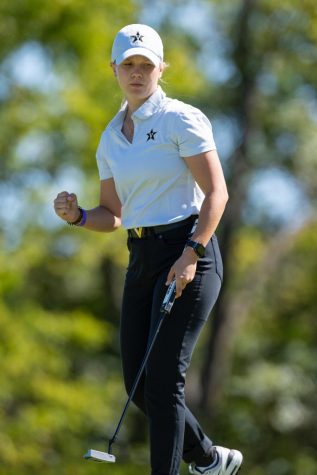
“I would say, actually, COVID has been a blessing in some ways,” Sattelkau explains. “Even before coming to college I knew golf was more than just golf. A lot of it is mental, fitness, nutrition. So I think being able to take some time off all the stress last summer made it possible for me to basically create some concepts that I constantly want to work on.”
With offseason practices and tournaments cancelled, Sattelkau was given space to improve her physical and mental health, turning to the foundation of what makes success in golf possible. This space manifested itself in a comprehensive, psychological plan to help her take her game to the next level: ‘The Winning Formula’.
“I recently created ‘The Winning Formula’. It basically has all these different little parts that you need. So it’s like sleep, nutrition, self care, fitness, mental and different parts of golf,” Sattelkau says. “And I think one thing I have been doing well recently is taking care of all of these little building blocks in order to have a good winning formula.”
Using a number of different concepts essential to success on the course as inputs, Sattelkau created this formula to maximize her performance. And by dedicating herself to the individual building blocks outlined by its structure, she has become more goal-oriented and success has quickly followed.
“I’m super into the growth mindset,” Sattelkau says. “Having that interest in the human mind and using that interest and knowledge to basically make a plan of how I can get the optimal [result] has just been good [for me].”
With this revamped training approach and her ever-improving short game, Sattelkau is having a tremendous sophomore campaign. In four spring events, she has a 72 scoring average and has shot over 73 just twice in 12 rounds of competition, demonstrating one of her self-proclaimed strengths: consistency.
Sattelkau credits her newfound success not just to offseason improvements, but to her teammate, friend and role model Auston Kim as well.
“I’ve always been looking up to Auston. Even before I came to Vanderbilt,” Sattelkau says of her accomplished teammate. “She has always been a role model for me. That has also motivated me to get better and kind of be like her.”
And as Sattelkau has improved—and challenged Kim—so has the dynamic of Allen’s team. Behind its two leaders, Vanderbilt has been steadily trending upwards and with the Southeastern Conference Tournament (SEC) on the horizon, the competition fostered by the two is helping Vanderbilt prepare for its biggest stage.
“Auston doesn’t like to lose, period and doesn’t like to lose to anybody on our team,” Allen says.
“And when she has a teammate [Sattelkau] beating her now—for those two to kind of keep plugging along and try to beat each other is just going to elevate our team and make us all better.”
Iron sharpens iron. And that has been the case for Allen’s top two players. With the meat of Vanderbilt’s season still to come, constructive intrasquad competition and Sattelkau’s ‘Winning Formula’ may just push the Commodores to the peak of college golf.
“She [Kim] is very competitive, but I am really competitive too. It’s incredible how much I hate losing. I just love competing,” Sattelkau says. “So I think it’s a really great combination of on one hand to compete and make each other better, but on the other hand, also learn from each other. I think I especially can learn a lot from her. It’s really great to have a friend and a partner to do this whole journey together.”


